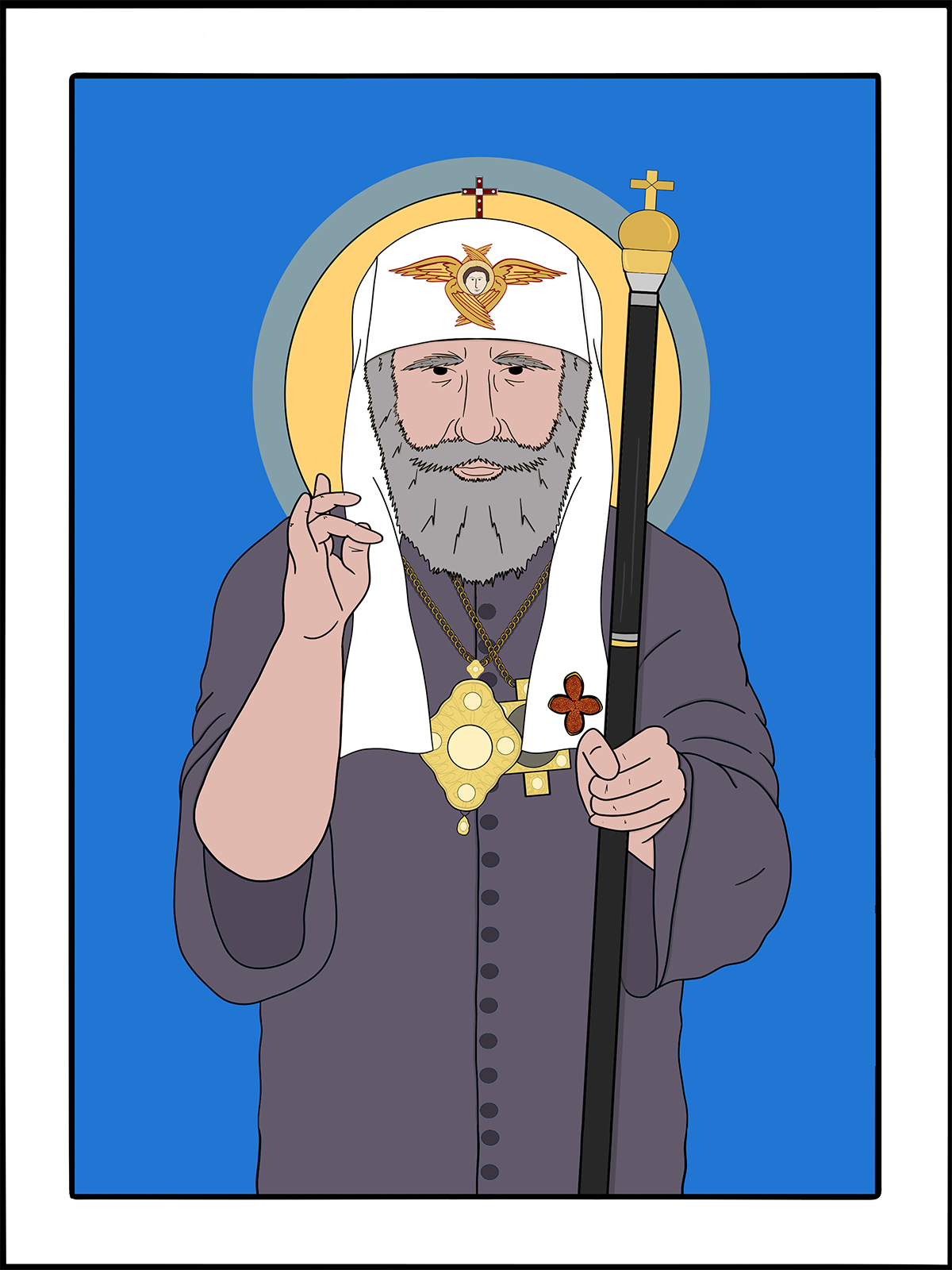
April 7
Tikhon
Bishop and Ecumenist, 1925
art by Rev. Kirsten Kohr of Geneva, Ohio Holy God, holy and mighty, you call us together into one communion and fellowship: Open our eyes, we pray, as you opened the eyes of your servant Tikhon, that we may see the faithfulness of others as we strive to be steadfast in the faith delivered unto us, that the world may see and know you; through Jesus Christ our Lord, to whom, with you and the Holy Spirit, be glory and praise unto ages of ages. Amen.
Vasily Ivanovich Belavin (Tikhon’s given name) was born January 19, 1865. He grew up in a rural area among peasants in a village where his father was a priest of the Russian Orthodox Church. Even as a child, he loved religion, and by age thirteen he began his seminary training, where his classmates nicknamed him “Patriarch.” At 23, he graduated as a layman and began to teach moral theology. Three years later, he became a monk and was given the name Tikhon.
By 1897, he was consecrated Bishop of Lublin, and in 1898 became Archbishop of the Aleutians and Alaska, the leader of Russian Orthodoxy in North America. Tikhon was held in such esteem that the United States made him an honorary citizen. While living there, he established many new cathedrals and churches, and participated in ecumenical events with other denominations, in particular the Episcopal Church. In 1900, at the consecration of Bishop Reginald Weller as coadjutor of the Diocese of Fond du Lac, the diocesan bishop, Charles Grafton, invited Tikhon to sit on his own throne. The Archbishop would have participated in the laying-on-of-hands if the Episcopal Church’s House of Bishops had not forbidden it. Tikhon later established warm relations with the Diocese of California.
In 1907, Tikhon returned to Russia and a decade later was elected Patriarch of Moscow. The outbreak of the Russian Revolution threw the Church into disarray. When a severe famine caused many peasants to starve in 1921, the Patriarch ordered the sale of many church treasures to purchase food for the hungry. Soon the government began seizing church property for itself, and many believers were killed in defense of their faith. The Communists tried to wrest control of the church from Tikhon, while he, in turn, attempted to shelter his people. To this end, he discouraged the clergy from making political statements that might antagonize the government. He prayed, “May God teach every one of us to strive for His truth, and for the good of the Holy Church, rather than something for our sake.”
Imprisoned by the Soviet government for more than a year, he was criticized both by the Communist Party and by those Orthodox bishops who believed he had compromised too much with the government. On April 7, 1925, he died, worn out by his struggles. In 1989, the Council of Bishops of the Russian Orthodox Church glorified Patriarch Tikhon, numbering him among the saints of the church.
Excerpted directly from “Lesser Feasts and Fasts 2022,” p. 178-179.

